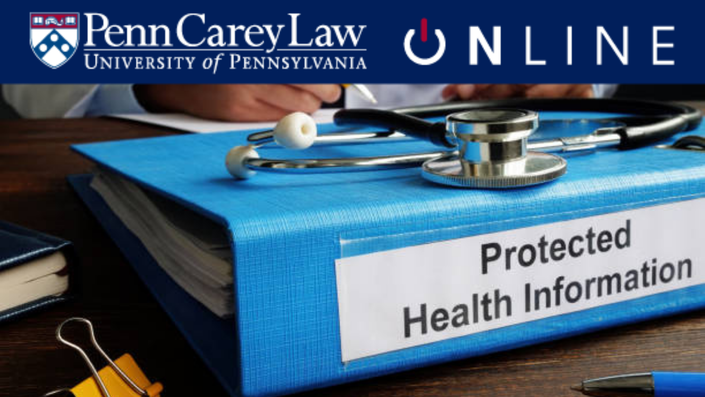
Privacy Law, HIPAA, and Data Protection
1.5 substantive credits
What does it take to comply with privacy laws?
In this course, we’ll look at the practical aspects of navigating the complex landscape of privacy requirements. Better understanding privacy laws and data protection will enable you to protect your organization and the constituents that depend on your organization to safeguard their personal information. First, we will examine the historical context that drove the creation of laws, best practices, and other standards for protecting personal information. We will also consider where in the U.S. privacy laws exist and which sectors remain unregulated. Next, we will focus on the federal health privacy law, the Health Insurance Portability and Accountability Act of 1996 (HIPAA) – and what it takes to comply with it. How do you know the scope of the requirements? And once you know HIPAA applies, how do you actually put measures in place to ensure compliance? We’ll explore the notion that one cannot have privacy without strong security and examine various models that promote the security of personal information. We’ll look closely at breach notification laws – one of the most significant drivers of change in organizations – and discuss strategies for the improvement of data protection overall. Lastly, we will look at international law, state law, the unique and important role of the Federal Trade Commission in protecting privacy. Most importantly, we get practical – we will discuss real-world, practical approaches to how compliance professionals can navigate the complex landscape of privacy requirements to best protect their organizations.

Lauren Steinfeld
Lecturer in Law
Your Instructor

